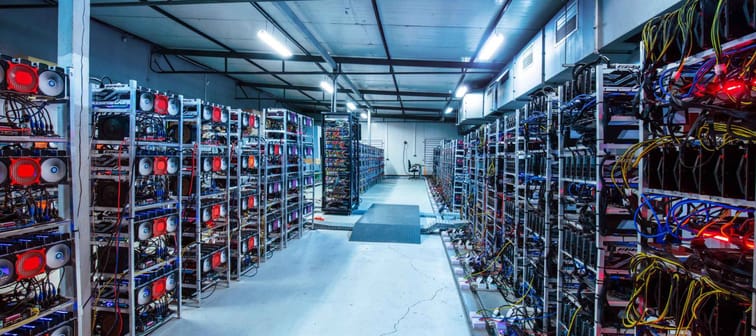The short version
- Ethereum gas fees pay for the computational effort necessary to complete transactions on the Ethereum blockchain.
- Gas is just one of the transaction fees required on Ethereum transactions. Others include the base fee and the priority fee.
- The Ethereum community is working to reduce gas fees through scalability upgrades, but investors can also take steps to reduce their fees today.
- Gas fees are partially based on demand. This means the more popular Ethereum becomes, the higher the gas fees are.
Meet Your Retirement Goals Effortlessly
The road to retirement may seem long, but with WiserAdvisor, you can find a trusted partner to guide you every step of the way
WiserAdvisor matches you with vetted financial advisors that offer personalized advice to help you to make the right choices, invest wisely, and secure the retirement you've always dreamed of. Start planning early, and get your retirement mapped out today.
Get StartedWhat are Ethereum gas fees?
“Gas” is the cost of buying or selling on the Ethereum network. It's used to describe a unit of measurement of the computational effort it takes to complete a transaction. And just like the gas you put into your car, this type of gas isn't free. When investors interact with the Ethereum network, they must pay gas fees to cover the computational effort required for that transaction.
Gas ultimately helps investors as it prevents the Ethereum network from getting bogged down. And they make the network more secure. The Ethereum mining process keeps scammers from taking over the network, which ultimately keeps investors safe.
That being said, like other fees, gas fees can be a pain. And in the case of Ethereum gas fees, you never quite know what you're going to pay since they're based on the current supply and demand. The more demand there is for Ethereum, the higher the gas fees.
How Ethereum gas fees work
Anytime you interact with the Ethereum network, you pay gas fees in Ether, which is the native currency. Gas is priced in gwei, One gwei equals 0.000000001 Ether. The transaction fee for each transaction consists of the gas units plus the base fee plus a priority fee.
Each block of Ether has a base price, a gas limit, and a tip. The calculation for the total transaction fee looks like this:
Gas fee = gas units (limit) x (base fee + tip)
Let's break each of those fees down a bit more.
First, the gas limit is the amount a trader is willing to spend on a transaction.
Investors set their own gas limit, but if it doesn't meet the minimum necessary to complete the transaction, the transaction simply won't go through. In fact, not only will your transaction not be completed, but you also don't get back the gas fee you already spent on it.
Next, the base fee is the reserve price associated with each block. In each transaction, the offered price has to equal or exceed the base fee. The base fee for each block is based on the size of the previous block and the target size of the block in question. Assuming the target block size is exceeded, the base fee increases by up to 12.5% per block.
Finally, the tip is a priority fee set by the investor. This compensates miners for their work. Many cryptocurrency wallets set these tips automatically. The higher your tip, the more quickly your transaction is completed. This priority fee essentially acts as an incentive.
Stop overpaying for home insurance
Home insurance is an essential expense – one that can often be pricey. You can lower your monthly recurring expenses by finding a more economical alternative for home insurance.
SmartFinancial can help you do just that. SmartFinancial’s online marketplace of vetted home insurance providers allows you to quickly shop around for rates from the country’s top insurance companies, and ensure you’re paying the lowest price possible for your home insurance.
Explore better ratesThe problem with gas fees
It's no surprise that investors dread the gas fees required for Ethereum transactions. And there's a direct correlation between the popularity of Ethereum and the gas fees investors must pay. In other words, the higher the demand of Ethereum transactions, the higher the fees you end up paying.
It's also important to remember that your total fee doesn't just include the gas required to complete the transaction. It also includes the base fee, which is programmed to increase, and a tip. And when demand is high, it may require a higher tip to even have your transaction processed. In short, Ethereum gas fees have been notoriously volatile, as evidenced by this Ethereum gas fees chart.
Ethereum gas fees chart – 5 years
Since any costs that are required to process a trade (including exchange fees) will eat into your overall profits, it's easy to see how high gas fees would negatively impact active cryptocurrency traders. But when gas fees increase significantly, they can also discourage passive investors.
Why? Because may long-term investors practice dollar-cost averaging, where they make consistent purchases on a regular schedule, such as weekly or monthly. But as fees become more expensive, this investment strategy becomes less and less cost-effective, and investors may turn away from Ethereum to cheaper platforms.
How to reduce gas fees
If you're a part of the online cryptocurrency community, then you probably saw the outcry from investors about the high Ethereum gas fees in late 2021 and early 2022. The good news is there are a few things you can do to reduce your overall fees.
First, think about when to make your cryptocurrency transactions. As we mentioned, transaction fees are largely impacted by demand. And when there are more people trying to initiate transactions, the fees increase. Therefore, you can save money by choosing to buy at a time when demand is lower, such as on weekends.
Another way to reduce your fees is to lower the priority of your transactions. A part of your total cost is the priority fee, which serves as a tip for the miner. The higher the tip, the faster the transaction goes through. If your transaction isn't particularly time sensitive, you could set a lower tip, understanding that it would take longer to complete.
Finally, you can monitor gas fees to initiate your transactions at a time when fees are lower. Tools like Etherscan and the Blocknative Gas Estimator give investors an idea of current fees so they can decide whether to initiate a transaction.
When are Ethereum gas fees lowest?
The general rule of thumb is that Ethereum gas fees should be lowest at nights and on weekends.
Why? Because these are the times when (in theory) more people should be away from their computers due to being out and about or sleeping. Remember, the fewer people that are transacting on the network, the lower the fees.
However, this rule isn't perfect. For example, if a crypto crash (or big run-up) begins on a weekend, the Ethereum network could suddenly be inundated with traffic.
Also, there's some disagreement about whether fees really tend to be lower when people are away from work. Some would argue that these are the times when crypto enthusiasts are actually more likely to trade since they'll have more free time on their hands.
At times, the evidence has seemed to confirm that hypothesis. For example, in the 7-day chart below, we see that the highest-fee day was Monday, May 30th, which happened to be Memorial Day in the U.S.
!https://investorjunkie.com/wp-content/uploads/2022/06/Ethereum-gas-price-chart-2-1024x418.png
Ethereum gas fees chart – 7 days
If there was a specific day and time each week when gas fees were lowest, every trader would try to trade at this time. And guess what? That would drive the fees up. So rather than setting a recurring reminder on your phone, the best way to reduce gas fees you pay is just to monitor them over time and do your best to avoid trading during spikes in demand.
The future of Ethereum gas fees
Those on the Ethereum platform are well aware of the problem that gas fees cause for investors. As a result, they're working on steps to reduce them in the future.
Currently in the works is the Ethereum 2.0 upgrade, which is designed to make the platform more scalable, more secure and more sustainable. According to Ethereum's website, improving Ethereum's scalability makes it easier for the platform to complete more transactions per second, which ultimately reduces costs for investors.
You can visit Ethereum's website to follow along with the progress of the various upgrades that are in the works.
Sponsored
Follow These Steps if you Want to Retire Early
Secure your financial future with a tailored plan to maximize investments, navigate taxes, and retire comfortably.
Zoe Financial is an online platform that can match you with a network of vetted fiduciary advisors who are evaluated based on their credentials, education, experience, and pricing. The best part? - there is no fee to find an advisor.










